
Many people are familiar with multivitamins, which are used to help fill in nutrition gaps in a person's diet. Prenatal vitamins are a type of multivitamin critical for both the mom and the baby during pregnancy. Adequate and well-balanced nutrition is essential to the health of both the mom and the baby during pregnancy, which is why pregnant women need the best prenatal vitamins.
The Best Prenatal - Our Top Picks
- Best Overall: Ritual Prenatal Vitamin
- Best for Hair: Nature Made Prenatal
- Best with DHA: Vitafusion PreNatal Multivitamin Gummy
- Best Gummies: Garden of Life Prenatal Gummy Multivitamin
- Best Vegetarian: Vitamin Code RAW Prenatal
- Best with Iron: NATURELO Prenatal Multivitamin
- Best Powder: Needed Vanilla Multivitamin Powder
- Best for Morning Sickness: Best Nest Wellness Prenatal Multi+
But if you’re not sure what to look for when it comes to prenatal vitamins, it can be hard to discern between different types. That’s why we did the work for you, putting together a guide on what to look for in a prenatal vitamin, as well as our top picks for pregnant women.
Why Trust Us?
The health and safety of ACTIVE's readers are of the utmost importance to us. To ensure your well-being when consuming vitamins, the ACTIVE.com editorial team prioritizes products that are independently tested by a third party. We've also consulted with a team of nutritionists and dieticians to ensure the products we feature are of the highest standard. This helps us create the most accurate, authentic review content for our readers.
Disclaimer: We recommend consulting with your doctor before ingesting a new vitamin or supplement. Prenatal vitamins are not a substitute for a balanced, nutritious diet.
Best Overall - Ritual Prenatal Vitamin
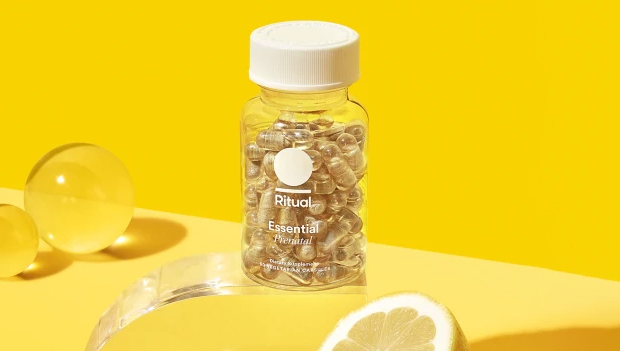
SPECS
- Price: $$
- Flavor options: Citrus and mint
- Source/type: Capsules
- Serving size: 2 capsules
- Calories: None noted
- Artificial sweeteners: None noted
If you’re looking for a prenatal vitamin that hits all of the bases, the Ritual Prenatal vitamin might be for you. It contains 12 nutrients that are important during pregnancy, including 100 percent or more of your daily needs of folate, vitamin B12, and vitamin D. Notably, the website lists the cities where all ingredients are sourced for easy traceability.
The vitamin also comes in a delayed-release capsule that’s supposed to make it to the small intestine before breaking down, which helps your body absorb the nutrients inside. Hate the smell of vitamin bottles? The Ritual vitamins come in a bottle with a citrus tab, which offers a pleasant lemon scent. And for pregnant women interested in other quality factors, the product is third-party lab tested to ensure its purity.
What We Like
- Focused on the bioavailability of vitamins; chose to include methylated folate for better bioavailability
- Third-party tested
- Sourcing of ingredients is very clear
- Convenient subscription-based service
- Lemon was added to the bottle to make opening the bottle a more pleasant experience
What We Don't Like
- Lacks EPA
- No calcium or vitamin A
- Only contains 55 milligrams of choline versus the 450 milligrams recommended for pregnant women
Best for Hair - Nature Made Prenatal Vitamins
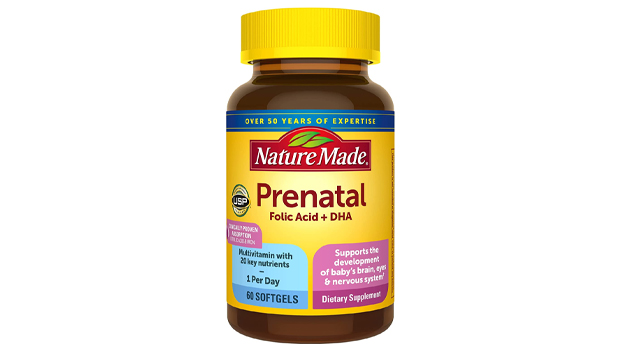
SPECS
- Price: $
- Flavor options: N/A
- Source/type: Softgel capsule
- Serving size: 1 softgel capsule per day
- Calories: 5
- Artificial sweeteners: None noted
If you want to give your hair some extra love, we recommend the Nature Made Prenatal Vitamin. It contains vitamins A, C, B, D, E, and K, folic acid, calcium, iron, zinc, and two omega-3 fatty acids from fish oil—DHA and EPA.
The Nature Made option is also best for hair because it contains biotin, DHA, and a variety of other vitamins and minerals important in pregnancy. While there isn't a daily recommended amount for the general population, an adequate intake of 30 micrograms per day is suggested for pregnant women. This Nature Made Prenatal vitamin meets this recommendation by providing 30 micrograms of biotin in one soft gel.
What We Like
- 1 capsule per day provides a variety of vitamins and minerals that are important in pregnancy
- Contains both DHA and EPA, which may be good for hair growth
- Gluten-free
- Third-party tested
- Affordable brand that is often available at retail stores
What We Don't Like
- Some users have noted that the supplement tastes and smells like fish, possibly due to the fish oil source for DHA and EPA
- Doesn’t contain choline
BUY: Nature Made Prenatal Vitamins
Best With DHA - Vitafusion PreNatal Multivitamin Gummy with DHA & Folic Acid
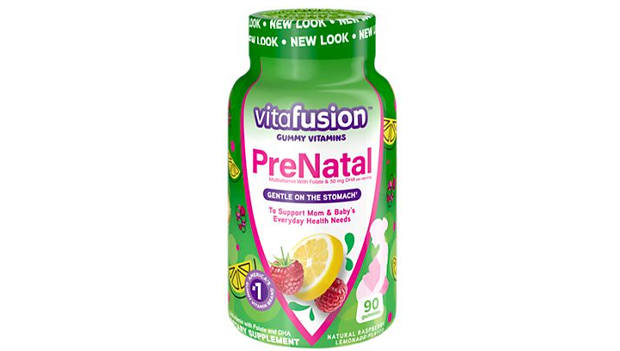
SPECS
- Price: $
- Flavor options: 1
- Source/type: Gummy
- Serving size: 2 gummies
- Calories: 25
- Artificial sweeteners: None listed
DHA is essential for both pregnant women and babies—it’s responsible for helping the baby develop a healthy brain, nervous system, and even boosts their eye health. The VitaFusion prenatal gummy provides 50 milligrams of DHA from fish oil in two gummies.
And if you hate taking pills, the VitaFusion’s gummy form might be right for you. Though it only comes in one flavor, the gummy form is still easier to ingest than a pill for some.
What We Like
- Gummy form, which can be easier to take than a pill or capsule
- Provides 800 IU of vitamin D
- Contains DHA
- Contains no artificial flavors, synthetic dyes, gluten, or dairy
What We Don't Like
- Doesn’t contain any iron
- Doesn’t contain any calcium
- Contains sugar
BUY: Vitafusion PreNatal Multivitamin Gummy with DHA & Folic Acid
Best Gummies - Garden of Life mykind Organics Prenatal Gummy Multivitamin
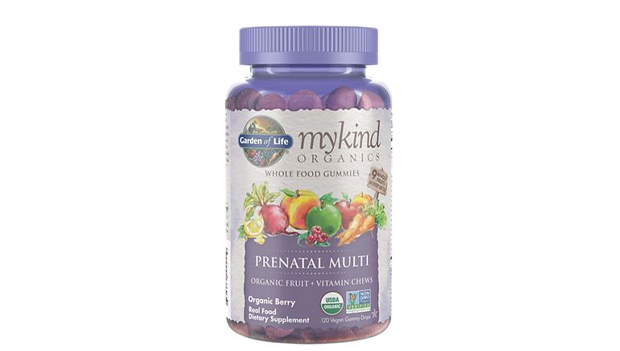
SPECS
- Price: $
- Flavor options: 1
- Source/type: Gummy
- Serving size: 4 gummies
- Calories: 35
- Artificial sweeteners: None noted
Speaking of gummies, the Garden of Life prenatal gummy is made from a base of organic apples and peaches and is flavored with real juices and concentrates. It also contains a food-based vitamin blend.
This gummy contains no artificial flavors, ingredients, or colorings. It is USDA-certified organic, non-GMO, vegan, gluten-free, dairy-free, and soy-free. Reviews suggest that it tastes good, and many pregnant women report good tolerance to this gummy.
What We Like
- Contains 600 micrograms of folate
- Contains 800 IU of vitamin D
- Real food ingredients
What We Don't Like
- Doesn’t contain iron
- You have to take 4 gummies to get a complete serving of this prenatal vitamin
BUY: Garden of Life mykind Organics Prenatal Gummy Multivitamin
Best Vegetarian - Garden of Life Vitamin Code RAW Prenatal
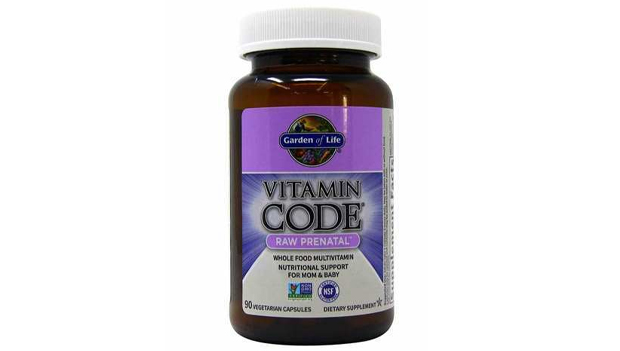
SPECS
- Price: $
- Flavor options: N/A
- Source/type: Capsules
- Serving size: 3 capsules
- Calories: None listed
- Artificial sweeteners: None noted
If you’re vegetarian, you have to be extra diligent about checking the ingredients label of vitamins. The Garden of Life Raw prenatal vitamin is fruit and vegetable-based, which makes it a great choice for vegetarians. It also meets the needs of mothers during pregnancy and lactation.
In this case, "raw" means that the ingredients come from foods that have not been processed with high heat. This vitamin also doesn't have synthetic fillers, artificial flavors, sweeteners, or other additives.
What We Like
- Contains 1400 IU vitamin D
- Includes 27mg of iron
- Contains a probiotic to aid in digestion and possibly immunity
What We Don't Like
- Doesn’t contain choline or DHA
- You have to take 3 capsules per day, and the company recommends you to take them at 3 separate times
BUY: Garden of Life Vitamin Code RAW Prenatal
Best With Iron - NATURELO Prenatal Multivitamin with Iron Folate and Calcium
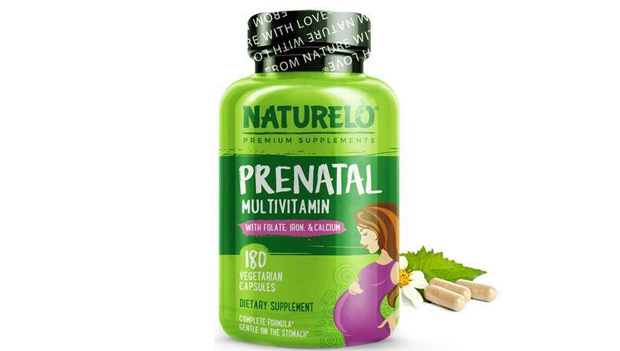
SPECS
- Price: $
- Flavor options: N/A
- Source/type: Capsules
- Serving size: 3 capsules
- Calories: None noted
- Artificial sweeteners: None noted
Iron is important for pregnant women because your body uses iron to make more blood for your baby. It also makes sure the baby gets the necessary amount of oxygen for healthy development. The Naturelo prenatal multivitamin contains 25 nutrients to support a healthy pregnancy, including 27 mg of iron (recommended dose for pregnant women). The iron source was also carefully considered for easier absorption and digestion, as it is chelated.
What We Like
- Contains 27mg of iron from a source that may cause less constipation
- Includes folate and choline
- Vegan
- Contains 255mg calcium per serving
What We Don't Like
- You have to take three capsules to equal one serving
- No longer contains DHA, as it was removed to improve the smell
BUY: NATURELO Prenatal Multivitamin
Best Powder - Needed Vanilla Multivitamin Powder for Prenatal, Pregnancy, Breastfeeding, Postpartum
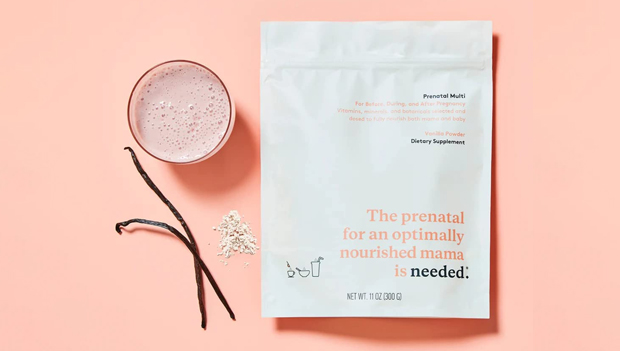
SPECS
- Price: $$$
- Flavor options: 1
- Source/type: Powder
- Serving size: 2 scoops (9g)
- Calories: 20
- Artificial sweeteners: None noted
It’s clear that plenty of care was taken with the ingredients to ensure they are the most bioactive versions. Sweetened with monk fruit extract and natural vanilla flavor, this vitamin also doesn’t contain any sugar or artificial sweeteners.
What We Like
- Contains 400 mg choline
- Contains 4000 IU vitamin D
- Powder form that can be added to different beverages, which may be easier for some women to tolerate than a capsule or pill
What We Don't Like
- Requires separate supplementation for DHA and/or EPA
- Doesn’t include iron
- More expensive option
BUY: Needed Vanilla Multivitamin Powder for Prenatal, Pregnancy, Breastfeeding, Postpartum
Best For Morning Sickness - Best Nest Wellness Mama Bird AM/PM Prenatal Multi+
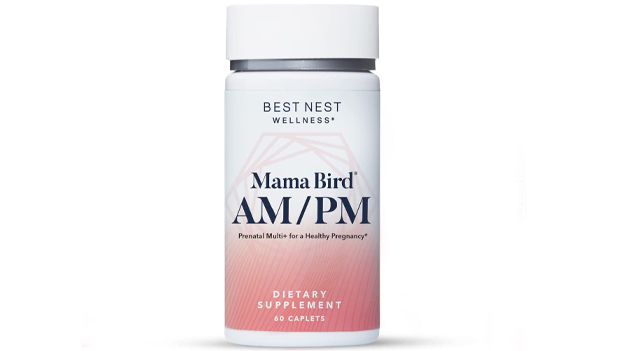
SPECS
- Price: $$
- Flavor options: N/A
- Source/type: Caplets
- Serving size: 2 caplets
- Calories: None noted
- Artificial sweeteners: None noted
Morning sickness and nausea are common issues in pregnancy, especially in the first trimester. The Best Nest Wellness Mama Bird multivitamin was designed with morning sickness and digestion in mind. The organic ginger, chamomile, probiotics, and digestive enzyme blend help reduce the likelihood of intolerance of the vitamin.
This supplement is a good option for women interested in knowing their vitamin has been thoroughly tested—it’s been tested for gluten, heavy metals, microbiology, nutrient content, time-release, and pesticides. This vitamin contains no artificial colors or flavors and is free of gluten, dairy, soy, and nuts. It is also vegan and non-GMO. We also like that the Best Nest vitamin contains the recommended 35 micrograms per day of biotin and 800 mcg of folate.
What We Like
- Has choline
- 30-day money back guarantee
- Tolerance was a consideration in the design of the product (contains ginger, digestive enzyme blend)
What We Don't Like
- Intended to be taken twice daily, which might be difficult to remember
- Low in calcium, contains only 64mg in 2 caplets
- DHA is sold by the company as a separate supplement and is not included in this vitamin
BUY: Best Nest Wellness Mama Bird AM/PM Prenatal Multi+
What are Prenatal Vitamins?
While prenatal vitamins aren’t a substitute for a healthy and balanced diet, prenatal vitamins are recommended as part of the prenatal care for women who wish to become pregnant or are currently pregnant. Prenatal vitamins are oral supplements designed to address the nutrition needs of pregnant women and babies.
Pregnant women should take them daily in addition to eating a nutritious diet. Prenatal vitamins typically contain various vitamins and minerals, but not all prenatal vitamins are formulated the same.
Key Nutrients and Benefits
Many nutrients are particularly important for mom and baby during pregnancy. Prenatal vitamins should include the following nutrients and amounts:
- Folic acid: 400-800mcg per day. Important in the first month of pregnancy. Prevents neural tube defects, such as spina bifida.
- Vitamin A: 770mcg per day. Important for the fetus and mother. Helps with bone growth, healthy skin, and eyesight.
- Iron: 27mg per day. Helps red blood cells deliver oxygen to tissues.
- Calcium: 1000mg (1300 mg if 18 years of age or younger) per day. Important for bones and teeth.
- Vitamin B12: 2.6 mcg per day. Helps with the nervous system and red blood cells.
- Vitamin D: 600IU per day. Helps build strong bones and teeth.
Make sure to check with your physician or medical provider before taking any vitamins or additional supplements. Though vitamins and minerals are an important part of a healthy diet, especially in pregnancy, high doses of nutrients can also cause issues. For example, high vitamin A levels can be harmful and cause birth defects. A prenatal vitamin should contain 5000 IU of vitamin A in a serving. You should only take one serving of the prenatal vitamin per day unless instructed otherwise by a medical provider.
Choline is another important mineral in pregnancy and is sometimes included in a prenatal vitamin. 90-95 percent of pregnant women do not meet the adequate intake level for choline. The body naturally makes some choline, but not enough to meet all its needs. Some must come from foods in your diet or a supplement. Foods rich in choline include animal products such as meat, poultry, fish, dairy, and eggs.
How to Use a Prenatal Vitamin
Women sometimes have trouble taking a prenatal vitamin daily as recommended. Some women forget or find it hard to tolerate due to morning sickness. Here are some ways to make prenatal vitamins a part of your everyday routine:
- Try to stick to a schedule, i.e., take the vitamin at the same time every day. If you have nausea in the morning or evening, try taking it with lunch or after a midday snack instead.
- To reduce nausea, try to always take a prenatal vitamin with food.
- Choose a smaller tablet if you have trouble swallowing pills, or split the dose into two doses if it has more than one pill or capsule per serving.
- Take a prenatal vitamin with less iron if you have trouble tolerating iron (constipation or nausea are common side effects), but be sure to eat other food sources that contain iron.
- Drink plenty of water, aiming for around 8-12 cups per day.
- Include more fiber in your diet (whole grains, fruits, vegetables) if constipation is an issue from the prenatal vitamin.
What to Consider When Choosing a Prenatal Vitamin
Check with your physician to see if they have a recommended brand for you to try. Other factors to consider after checking with your medical provider include:
Bioavailability of Nutrients
The body does not digest and absorb all forms of vitamins and minerals with the same efficiency or completeness. If a vitamin or mineral is in a bioavailable form, you'll likely absorb more of the nutrient.
Form
Prenatal vitamins come in many different forms. If you don't enjoy taking a capsule, you may prefer a gel cap. If the idea of a pill is nauseating, you could try a powder or gummy option. Check the serving size, as you may have to take more than one capsule or gummy to meet the intended serving.
Third-Party Testing
An outside company does this type of testing. Third-party testing ensures no contaminants and that the vitamin contains what the manufacturer intended it to contain. Choosing a vitamin or supplement tested by a third party is always recommended.
Price
Vitamins come at a variety of price points. A higher price doesn't always mean higher quality, so do your research to make sure you’re paying for a high-quality product at a price that doesn't make you uncomfortable.
Our Rating Scale
Price/affordability (rating scale of $-$$$)
Prices depend on a number of factors, and tend to fluctuate over time, so we've kept our affordability rating scale simple so you can easily see how products compare:
$ = under $1 per serving
$$ = $1-2 per serving
$$$ = over $2 per serving
Flavor Options (rating scale of 1-3)
For dietary supplements that you take frequently, or even daily, options are important. When it comes to vitamins, there are less flavor options since most vitamins come in a capsule or pill form. If flavor is important to you, gummy vitamins typically come in a one to two flavor options.
N/A = Unflavored
1 = 1-2 flavor options
2 = 3-4 flavor options
3 = 5 or more flavor options
FAQs About Prenatal Vitamins
Is it Ok to Take Prenatal Vitamins if You're Not Pregnant?
Yes, it's perfectly fine to take a prenatal vitamin if you're not pregnant. However, we always recommend consulting with your doctor before taking anything new. Women of childbearing age should consider taking a prenatal vitamin even if they don't plan to become pregnant soon. All women of reproductive age should get 400 mcg of folic acid per day, and it's difficult to meet this through diet alone.
Which Prenatal Vitamins are Best for Pregnancy?
While there isn’t one single vitamin that’s best for pregnancy, vitamins that contain folic acid, iron, calcium, and vitamin D. Choline, vitamin C, vitamin A, B vitamins, zinc, and vitamin E are the most important for pregnant women. Also check with your doctor or health care provider to see which prenatal vitamin brand or type might be best for you based on your health history and nutrient needs.
When Should You Start Taking Prenatal Vitamins?
Women should take a prenatal vitamin at the following stages:
- Before they become pregnant. Women should consider taking a prenatal vitamin during childbearing ages (15-44), especially if they're sexually active.
- If planning to become pregnant, a woman should start taking a prenatal vitamin.
- While pregnant.
- Consider taking a prenatal vitamin while breastfeeding. Though the prenatal may exceed the breastfeeding mother's needs for iron and folic acid, it may be necessary to meet other nutrients, especially for vegan or vegetarian mothers.
What Are the Benefits of Taking Prenatal Vitamins Before Pregnancy?
One of the most important benefits of taking a prenatal vitamin is ensuring adequate folic acid intake. Folic acid is needed in the first few weeks of pregnancy for the baby's developing nervous system, often before a woman realizes she is pregnant. Prenatal vitamins also often contain omega-3 fatty acids (DHA and/or EPA), which may have heart and brain health benefits.
Some prenatal vitamins have biotin, which may be good for hair and nails. Some people find prenatal vitamins easier to tolerate than a standard daily multivitamin as they sometimes come formulated for women with nausea and morning sickness.
These statements have not been evaluated by the Food and Drug Administration. This product is not intended to diagnose, treat, cure, or prevent any disease.
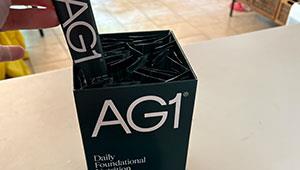




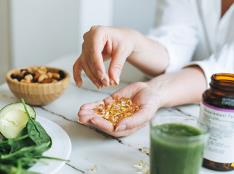


Discuss This Article